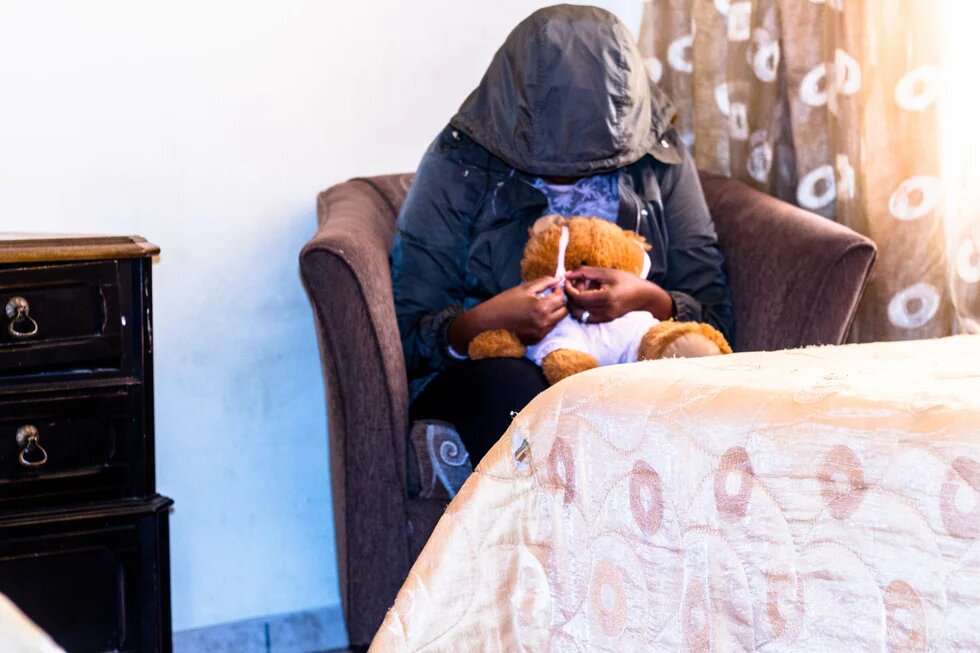In his 2018 budget speech, the Minister of Finance Malusi Gigaba emphasised the need to “lend a hand in addressing society's most pressing challenges”. Among a myriad of social ills, injustices and other challenges facing our country are the ever-present and persisting rates of violence against women and children, many of whom are literally forced to run away from abusive relationships.

Shelters for women in South Africa play a critical role in providing women with reprieve from domestic violence and other forms of abuses - women who, by and large, are economically disenfranchised.
It is with this in mind, that the minister's budget must be interrogated. The minister announced (described as “unavoidable”) a percentage point increase in VAT - one measure among several tax proposals - to generate an additional R36 billion in tax revenue to mitigate South Africa's current R50bn deficit. This adjustment, said Gigaba, would maintain “the integrity of our public finances”, while “protecting social services”.
Treasury officials recognised the negative impact that VAT would hold for a great majority of households in South Africa, but cited this increase as a “responsible” move - a “give and take” in an attempt to leverage economic stability in the country.
As a result, two commitments have been undertaken by Treasury, to off-set the impact of this VAT increase on poorer households. The first, which is already in place, is the zero-rating of 19 basic food items (e.g. maize meal, brown bread, dried beans and rice). The second, an increase in social grants such as the child support grant, which is to increase from R380 to R400 by April and a further R10 toward the latter part of 2018.
Granted, something dramatic needed to be done, but should it be at the expense of the most vulnerable, such as women in abusive relationships? Surely, there was other “fat” that could have been trimmed off the bone?
At the same time, while there exists a promise to “protect” social services, there is little evidence that organisations providing social welfare services - like shelters for abused women and their children - will receive budgetary increases to off-set the VAT increase.
This is particularly important, given that recently-released research undertaken on state funding of shelters by the National Shelter Movement of South Africa (NSM) and the Heinrich Boell Foundation (HBF), through their “Enhancing State Responsiveness to GBV: Paying the True Costs” EU-funded project, reveals that the majority of women accessing shelters are unemployed and not recipients of social grants.
Consequently, shelters - the majority of which are run by non-profit organisations - have to meet most of the costs associated with the provision of sheltering. This includes women and children's day-to-day needs such as food, toiletries, clothing and transportation, among other medical, legal and psychosocial support needs.
Many of these costs are likely to be further impacted upon by the increase in VAT. The research also found that organisations providing victim empowerment services, like shelters for abused women, tend to receive lower allocations of funding in comparison to organisations focused on other social welfare sectors.
It is therefore of prime importance that treasury monitors the impact of the increased VAT on poorer households, as well as its impact on institutions like shelters, that provide social welfare services for some of these very same households.
Furthermore, the R788m equitable share allocation to provinces (of which R201m is allocated to the 2018/2019 financial year) for the “prevention and mitigation of violence against women and children” will require close monitoring on the part of national treasury in conjunction with provincial treasuries.
We hope that some of this additional allocation will be spent on prioritising funding for organisations rendering social welfare services to those directly impacted by violence against women and children.
Also on the “social development” cards are increased budgetary allowances for the employment of social workers (a critical resource for shelters); an increase in spending on substance abuse (a key contributor to violence against women and children); and the reviewing and (most importantly) costing of the Integrated Programme of Action to Address Violence against Women and Children. These are all vital and welcomed responses.
One cause for concern however, is the department's drive to submit the Victim Empowerment Support Services Bill to cabinet for approval by March 2019. The bill is imperative, as it could very well be the key ingredient to addressing the current gaps and loopholes of the existing legislative and policy framework on domestic violence and the provision of shelter services.
However, the bill, as it currently stands, lacks the content needed to address the plight faced by shelters and it is completely silent on how shelters are to be funded.
This is a key strategic opportunity for social advocacy and mobilisation, particularly if we are to truly “be there for the victims of violence and abuse”.
So while many of us disagree on whether the increase in VAT will stem the tide of continued ratings declines or further unhinge an already unequal society, a lot at the moment remains to be seen. South Africa is at a precipice, with a newly-elected president who vows to dismantle corruption, cut the “fat” off cabinet and “lend a hand”.
Let's hope that this truly is the point when the people start to turn it around.
---
This opinion piece was originally published in the Cape Argus on the 27th of February 2018 and can be accessed via https://www.iol.co.za/capeargus/opinion/think-of-those-the-fiscus-forgo…